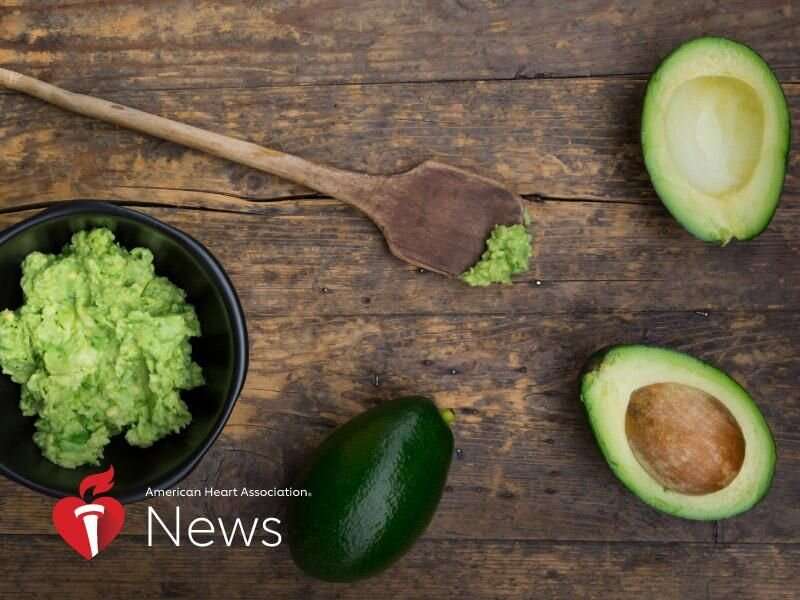

This Super Bowl Sunday, millions of Americans will reach for avocados to make guacamole, a standard go-to snack for game day. But that green goodness can offer plenty of other benefits that make them a heart-healthy food option year-round.
Rich, creamy and satiating, avocados travel well, are versatile in the kitchen and are packed with vitamins.
Just one avocado has high amounts of fiber, potassium, magnesium, folate, vitamin C and vitamin K. Research shows people who eat avocados are less likely to develop metabolic syndrome, a cluster of conditions that can increase the risk of heart disease, stroke and Type 2 diabetes.
Avocados also are an excellent source of monounsaturated fat, which can help promote a healthy blood lipid profile, a measure of types of fat in the blood. A 2015 study published in the Journal of American Heart Association found that eating one avocado a day as part of a moderate-fat diet resulted in lower “bad” LDL cholesterol.
“Avocados are definitely a food I would include in a heart-healthy dietary pattern because it’s rich in soluble fiber and healthier fats,” said Maya Vadiveloo, assistant professor of nutrition and food sciences at the University of Rhode Island in Kingston.
“If you replace calories in your diet that come from animal fats and tropical oil with sources of monounsaturated fat like avocados, you’re going to have many beneficial effects on cardiovascular health.”
Believed to have originated in Mexico, there are now hundreds of avocado varieties around the world, although Hass appears to be the most popular in the United States, where they are grown mostly in California, Florida and Hawaii. According to the Hass Avocado Board, an industry trade group, 69% of U.S. households, about 80 million, bought avocados in 2019.
Super Bowl fans in the U.S. are estimated to consume nearly 48,000 metric tons of avocados in guacamole form, according to Tridge, a global food and agriculture market analysis company. In one day, that’s more than half a month’s worth of avocado imports.
But avocados are not calorie-free. A medium avocado averages about 240 calories and 24 grams of fat, according to the California Avocado Commission. Yet, unlike red meat or cookies, avocados are a source of healthy fat that can be eaten in place of “bad” saturated fat in a typical diet.
The key, said Vadiveloo, is to enjoy avocados in moderation. “Avocados are a high-calorie food, so people do tend to avoid it instead of using it in a more portion-controlled way.”
In addition to guacamole, avocados can be slathered on toast or tossed into salads, smoothies, dressings, omelets and just about anything.
In recent years, growers have introduced the single portion avocado, which averages 160 calories and half the fat of a regular size avocado. That also helps reduce chances of spoilage, a problem with larger avocados that tend to brown when left uneaten for too long, Vadiveloo said.
Besides heart health, this delicious fruit—yes, it is a fruit—could have other benefits.
Avocados are high in carotenoids, the antioxidant plant pigments responsible for bright hues in fruit and vegetables. Studies show two of the carotenoids in avocados, lutein and zeaxanthin, could help reduce the risk of eye disease. Research also has shown adding avocados to other vegetables, say in a salad or salsa, helps the body absorb more nutrients.
So, go ahead and enjoy guacamole this Super Bowl Sunday, but don’t forget avocados the rest of the year too, albeit in moderation, Vadiveloo said.
Source: Read Full Article